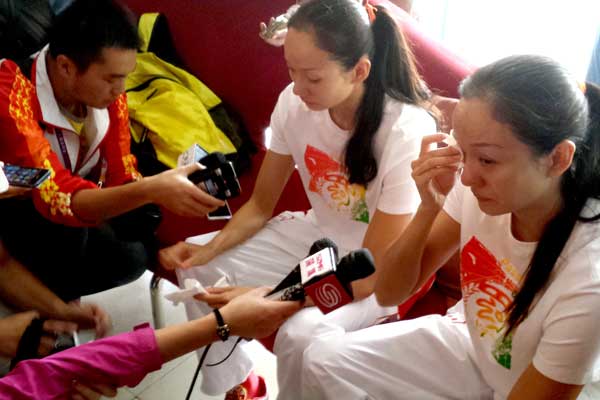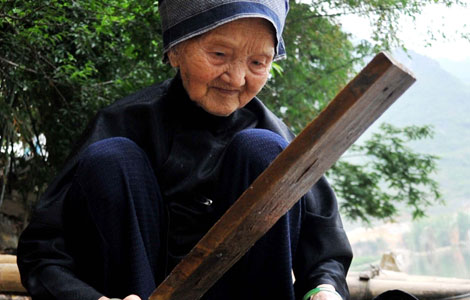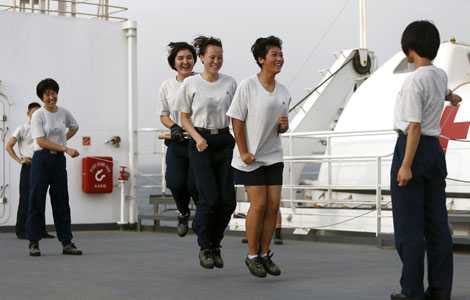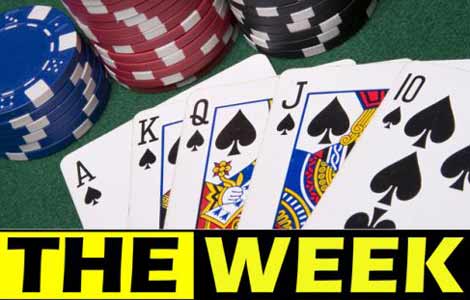National Games in dire need of reform
Updated: 2013-09-07 01:34
By Sun Xiaochen in Shenyang (China Daily)
|
|||||||||||
Experts urge reforming, but not scrapping, the scandal-plagued National Games, in part because the important domestic sports gala is a lifeline for many less popular events and athletes.
Lu Yuanzhen, a sports sociologist at South China Normal University, attributed the scandals at the games to the medal mania.
 |
|
Synchronized swimmers Jiang Tingting (right) and Jiang Wenwen answer questions from the media on Wednesday after they lost to the team from Liaoning, the host province of the National Games. The sisters claimed the outcome was fixed.[WU JUN / FOR CHINA DAILY] |
"For years, we've been calling for a change from the medal pursuit, but elite competitive results remain major achievements in evaluating officials instead of achievements in promoting mass fitness," Lu said.
So it's not strange that farces play out at the cost of sportsmanship and the public image of sporting events, Lu added.
The 12th National Games, running until Sept 12 in Liaoning, have revealed the ugly side.
Incidents such as the Beijing female rugby sevens team throwing a match and a Sichuan synchronized swimming pair's public accusation of biased judges bring to mind similar embarrassments at previous games and spark debate on whether the event is needed.
"The games were initiated back in the planned economy era — in 1959 — to encourage public sports participation, but they have evolved into a fierce battle among local sports authorities to chase after medals and seek benefits," said Yi Jiandong, a sports researcher and vice-president of Jiangxi University of Finance and Economics.
The multisport extravaganza held every four years has developed into a 31-event competition at which provinces compete to bring home glory. To motivate their athletes, they offer rewards for medals that at times even surpass those offered for Olympic titles.
The job evaluations of local sports officials are closely tied to the results at the event, which usually weigh heavily in decisions to promote or sack them.
Biased refereeing is said to be common, purportedly to the benefit of athletes from the host provinces, and sometimes leads to unsportsmanlike incidents such as the Beijing rugby squad's match-throwing protest.
On Wednesday, there was drama at the synchronized swimming pool, where twins Jiang Wenwen and Jiang Tingting from Sichuan province performed the same routine that earned them silver medals at the world championships last month, but finished with low scores.
Huang Xuechen and Wu Yiwen from the host province, Liaoning, won the gold medal.
"We performed our routine without any errors. How could they (the judges) drag us to third place? It's disrespectful to athletes' hard work and the Olympic spirit," Jiang Tingting wrote on her micro blog.
"These incidents end up making the National Games look a lot less professional than they really are," said Mark Dreyer, a former Associated Press sports reporter. "Most other countries don't have anything like this in terms of size or importance, and similar things (farces) would happen very rarely, if ever, at top-level sporting events in the West."
But less-popular sports need the National Games to develop and sometimes to survive.
The games are the only four-yearly platform that put some less-popular sports in the spotlight and lure investment for them.
The emerging rugby sevens event, which has earned inclusion in the 2016 Olympics, made its National Games debut in Liaoning and has been enjoying a surge in government support because local sports authorities found a new medal chance in it.
"The National Games are a big motivation for local governing bodies," Beijing men's rugby coach Zhang Zhiqiang said after steering his squad to third place in Liaoning.
For athletes of work-intensive sports like judo and weightlifting, winning a medal at the National Games might provide their only chance of earning a living after retiring as athletes.
Xie Shishi, a judoka from Hunan province who won gold in the women's 48 kg category, said: "It's really important for our future and also for the whole coaching crew behind us. A job offer means more than just prize money because most of us athletes are left with nothing after retirement."
Related Stories
Make National Games a sport event, not competition among officials 2013-09-06 22:39
National Games: Pictures of the day 2013-09-06 09:24
Sun Yang dominates, Ye Shiwen rebounds in National Games' pool 2013-09-05 10:26
National Games plagued by scandal 2013-09-04 16:43
Today's Top News
US agencies decry latest Snowden revelations
NASA launches robotic explorer to moon
President calls for worldwide free trade
Putin vows to help Syria
Supervision raised on rail building
Open up private market, Li says
Internet guru diagnosed with cancer
Web firms sued for spreading rumors
Hot Topics
Lunar probe , China growth forecasts, Emission rules get tougher, China seen through 'colored lens', International board,
Editor's Picks

|

|

|

|

|

|





